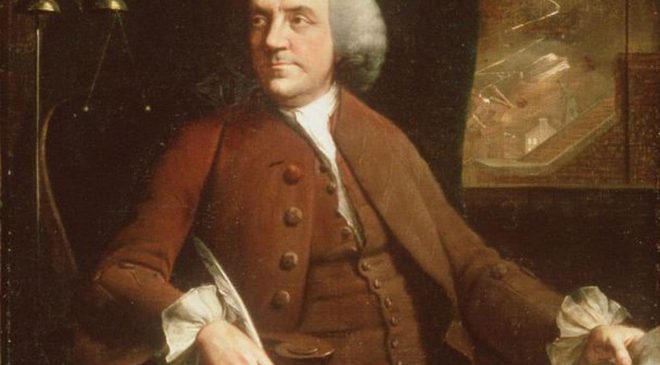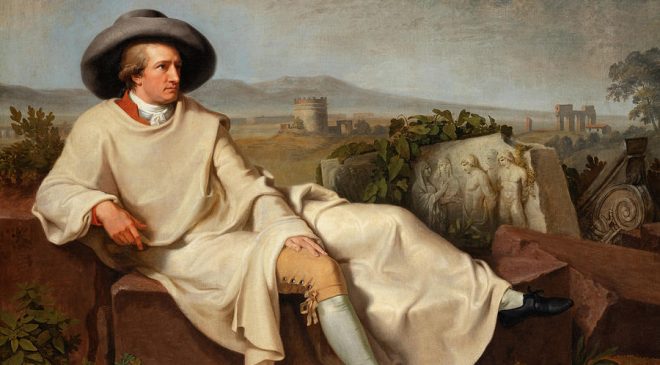r/AskReddit asked, “Why do you think people aren’t watching the Olympics?” To which I responded, “Because watching the Olympics would be supporting the communist and fascist state of China and their terrible human rights abuses spanning decades.” The following conversation on “intellectual property” with a few people ensued.
BedlamANDBreakfast: Where have people been? Hong Kong, Uyghurs, mass censorship, IP theft, Taiwan, India, Nepal, disappearing scientists and journalists… The list goes on.
Skyler: Copying isn’t theft. Just sayin’.
Legitimate-Break-955: If you create something it isn’t yours?
Skyler: Only if you owned the physical inputs. Creation cannot be a source of property rights.
tk7294: genuinely curious. Would you consider creating a painting, or a piece of code not the author’s property? I dont understand the “physical inputs” part.
saltygrunt: in order 4 something 2 be property, it must have scarcity. ip has no scarcity
Skyler: I recommend using rivalrous or conflictable instead of scarce in this context. See Kinsella: https://www.stephankinsella.com/2022/01/on-conflictability-and-conflictable-resources/
BedlamANDBreakfast: I was about to question that too. I’m torn on IP. I understand the slippery slope of government IP, but you’re also not required to tell everyone how you did everything. I think that ideas should be yours at least until someone reverse-engineers it. That’s the problem I have on the face with the blanket statement that “ideas aren’t property.”
It’s also the problem with China because they are breaking into very real, tangible property to get at those ideas.
Edit: To address the article, besides the beginning section about “I get to stick to my terms because I like them, but all you Minarchists are co-opting them,” I have questions about the way the author frames the transactional nature of an idea. (I also have questions about how he generally frames the language of his opposition as being fluid, and then uses fluid terminology himself.)
While I’ll concede that two people are able to use a similar piece of information at the same time, the problem comes more with the marketability of that idea into a tangible product or service. I would argue that refining that idea was part of the labor that you put into your project. The idea you had wasn’t only “rare” (the colloquial meaning of “scarce”) it was “unique” (the absolute scarcity). We can’t be cavalier with language just when it suits us, and I think that this is the actual argument behind “ideas are property.”
Now, while the author doesn’t address this, I could also see your point this way: You can “copy” an idea indefinitely. (Each person that knows it, copies it, and without getting into the absolute impossibility of that being a true copy, both in terms of Biology and Psychology, it’s an acceptable heuristic that I’ll grant.)
What I’m stuck on is how you did all this work on an idea, and then somebody sweeps in at the end, copies it, and beats you to market. I’ll grant that state copyright is rife with abuse and corruption, but that doesn’t mean that we automatically jump to “ideas aren’t scarce because I see what you did there.”
Skyler: Then the trespass is the issue, not the copying. The real injustice is that the US government (and others) doesn’t allow everyone else to also copy.
BedlamANDBreakfast: (I’m on a few parts of this post at once, because I’m currently working through this topic, so I appreciate the time. This is interesting.)
I think that we can all agree that the Trespass is the main issue with China. I should stop using the term “IP theft” when I’m referring to state spying. Fine.
As for IP itself, not the current copyright system, just the idea of ideas being property: I still think that you benefit from the labor of someone else by using their idea in the market before they have a chance to profit off of it.
I guess you could say that it’s incumbent on the idea-haver to keep the idea secret for as long as possible to ensure a return on their time. (Similar to abandoned property and homesteading.) But this is within the bounds of common language to call that “Intellectual Property.” (At least it’s more deliberate language than that author uses.) Maybe “trade secret” is a better term but, either way, the idea is unique and offers the thinker economic advantage and additional resources that are the result of their time thinking and working on that idea.
We can have a great conversation about how the state abuses copyright, and I’ll agree with almost all your points, but I feel like this conversation sweeps several parts of this process together and generalizes mistrust of formal copyright with the concept of unique thought. (Which I am also guilty of doing with my original “China IP Theft” comment.)
Skyler: Usable ideas must be implemented through conflictable resources. When somebody is granted a monopoly on the use of an idea they are granted a negative easement or negative servitude over other people’s conflictible resources, and this without consent (contract) of those people. This is the issue with so-called intellectual property, that it amounts to the state taking by force other people’s property.
You may use whatever means possible to protect an idea from escaping your control or being duplicated by other people, short of aggression. Otherwise you become the criminal in a libertarian sense.
BedlamANDBreakfast: That’s a reasonable assertion; I’ll think more on your “negative easement” point. I think the fundamental disagreement is whether ideas are property. I’m not yet convinced that they aren’t.
I posted somewhere else on here about the GNU Public License. It seems that this system might provide some hints at a legitimate way to allow creators the space to get their ideas to market, while disincentivizing patent hoarding. “Legitimacy” is a bit of a fuzzy concept, but the GPL has been pretty effective in allowing innovators room to add to an idea while respecting the original contributor. Private courts could enforce this, and one might be incentivized to respect this system because they can outsource innovation without fear of losing opportunity.
Skyler: We must back up and ask what sorts of things are ownable things*. The purpose of property rights is to reduce conflict over conflictable resources. Two people can’t use the same parcel of land at the same time without necessarily interfering, physically, with each other. This proves that land is a conflictable resource. Two people can use the same idea at the same time (implemented on their own conflictable resources) without interfering, necessarily, with each other. Ergo, land is ownable, ideas are not. You don’t need property rights in ideas because ideas are not a conflictable resource. To argue that an idea creator can’t make expected profits from his idea if others are competing with him only proves that he has a bad business model. Free markets show no mercy to bad business models, and they shouldn’t.
*Another non-ownable thing is reputation. Reputation is just the collection of opinions in other people’s minds. They own their brains, not you, and can think whatever they please about you, true or not.
That’s far as it went. I’m glad to see yet another person questioning the absurdity of “intellectual property” and coming one step closer to dropping it completely as anything compatible with libertarian principles. That’s progress!




